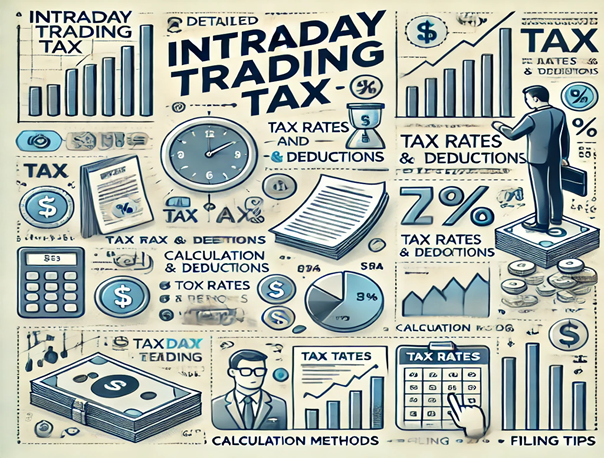Embracing the Digital Revolution: Transformations in the Staffing and Recruiting Industries
Industries are undergoing digital transformations in an era marked by rapid technological advancements. In particular, this digital revolution has not left the staffing and recruiting industry untouched. Digital staffing has become a buzzword recently, signaling a shift towards more efficient, data-driven, and streamlined recruitment processes. This blog will explore how the staffing and recruiting industries transform digitally and the key trends shaping this evolution.
The Digital Staffing Revolution
Online Job Portals: The rise of online job portals is perhaps the most visible aspect of the digital transformation in staffing. Job seekers can now easily search for openings, submit applications, and even receive job recommendations tailored to their skills and preferences. These portals have significantly expanded the reach of staffing agencies and made job hunting more accessible.
AI and Machine Learning: Artificial intelligence (AI) and machine learning (ML) are revolutionizing recruitment. Digital staffing platforms employ AI algorithms to sift through resumes, match candidates with job postings, and conduct preliminary interviews. This not only saves time but also improves the accuracy of candidate selection.
Big Data Analytics: Big data analytics is pivotal in the staffing industry’s digital transformation. By analyzing vast data, staffing agencies can identify trends, track candidate performance, and gain insights into the job market’s dynamics. This data-driven approach enables more informed decision-making.
Video Interviews: Digital staffing has made it easier for recruiters to conduct video interviews, which is especially valuable in remote and global hiring scenarios. Video interviews allow recruiters to effectively assess candidates’ soft skills and communication abilities.
Chatbots and Virtual Assistants: Chatbots and virtual assistants are used for initial candidate screenings and instant responses to candidate queries. They enhance the overall candidate experience by ensuring prompt communication and engagement.
Remote Work and Gig Economy: The digital staffing transformation has also fueled the gig economy’s growth. Staffing agencies now connect businesses with on-demand workers and freelancers, facilitating flexible workforce arrangements that align with the demands of the digital age.
Mobile Recruiting: With the proliferation of smartphones, mobile recruiting has become a significant trend. Staffing agencies are optimizing their websites and platforms for mobile devices, allowing job seekers to apply for positions on the go.
Blockchain in Background Checks: Blockchain technology is being explored to enhance the security and efficiency of background checks and verification processes. This ensures the trustworthiness of candidate information and reduces the risk of fraudulent applications.
Let’s dive deeper into some of the key aspects of the digital transformation in the staffing and recruiting industries:
- Enhanced Candidate Experience:One of the most significant impacts of digital staffing is improving the candidate experience. Job seekers can now access user-friendly, intuitive online platforms to create profiles, upload resumes, and receive job recommendations tailored to their skills and career goals. This enhanced experience attracts top talent and fosters a positive perception of staffing agencies.
- Improved Matching Algorithms:AI-driven algorithms are revolutionizing how candidates are matched with job openings. These algorithms consider not only candidates’ qualifications and experience but also their preferences, work culture compatibility, and soft skills. As a result, the matching process is more precise, increasing the likelihood of successful placements and job satisfaction.
- Data-Backed Decision Making:In the past, staffing decisions were often based on intuition and experience. Today, data analytics provides valuable insights into hiring trends, candidate performance, and market dynamics. Staffing agencies can use this data to make informed decisions, such as adjusting salary ranges, identifying in-demand skills, or expanding into new industries.
- Upskilling and Training:The digital transformation in staffing has created a demand for professionals with expertise in AI, data analysis, and other technology-related skills. This has led to opportunities for upskilling and training in the industry. Staffing agencies invest in training their teams to utilize new technologies and stay competitive.
- Diversity and Inclusion:Digital staffing also offers opportunities to address diversity and inclusion challenges in hiring. AI can be programmed to identify and mitigate biases in candidate selection, leading to fairer and more inclusive hiring practices. This aligns with the growing emphasis on diversity in the workplace.
- Scalability and Efficiency:Digital staffing platforms provide scalability, allowing staffing agencies to handle more job postings and candidates without a proportional increase in administrative overhead. This scalability translates into cost savings and improved efficiency.
- Client-Centric Services:Staffing agencies increasingly focus on providing client-centric services. Digital tools allow them to offer real-time updates on the progress of job placements, access to candidate databases, and customizable reports to meet client needs. This level of service customization enhances client satisfaction and loyalty.
- Rapid Response to Market Changes:The staffing industry, like many others, has witnessed disruptions, especially in response to unforeseen events like the COVID-19 pandemic. Digital staffing provides the agility needed to respond quickly to market changes, whether a sudden surge in demand for remote workers or a shift in skill requirements.
Challenges and Opportunities
While the digital transformation of the staffing and recruiting industries brings numerous benefits, it also presents challenges. Data privacy concerns, the need for upskilling in new technologies, and the potential for biases in AI-driven processes are some of the issues that need to be addressed.
However, these challenges also bring opportunities. Staffing agencies that adapt to the digital era can provide more value to their clients and candidates. They can offer data-driven insights, quicker placements, and improved candidate experiences. Additionally, they can tap into the global talent pool more effectively, expanding their reach beyond geographic limitations.
Conclusion
Digital staffing is reshaping the staffing and recruiting industries, making them more efficient, data-driven, and adaptable to the changing world of work. Embracing technology and innovation in the hiring process is no longer a choice but a necessity for staffing agencies to stay competitive and relevant in today’s job market. As digital staffing continues to evolve, recruiters and job seekers must embrace these changes and leverage their advantages to find the right match in the job market.







